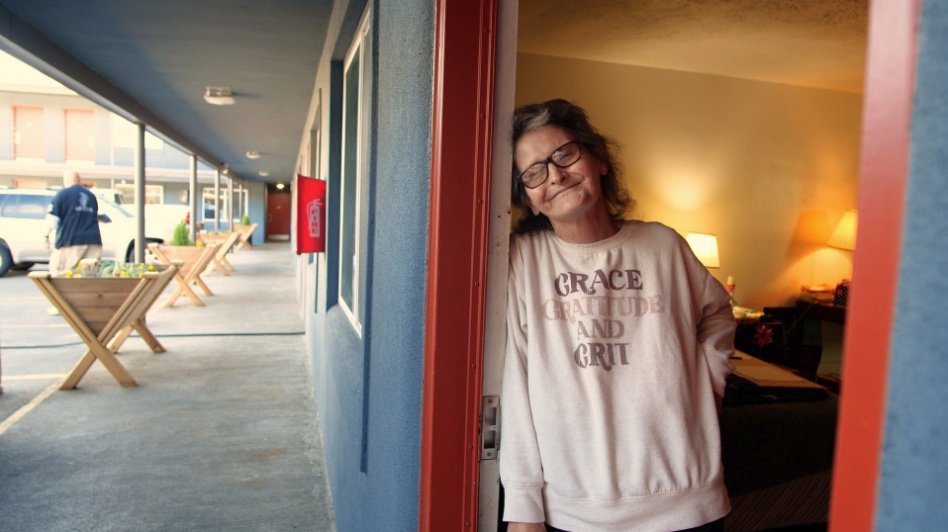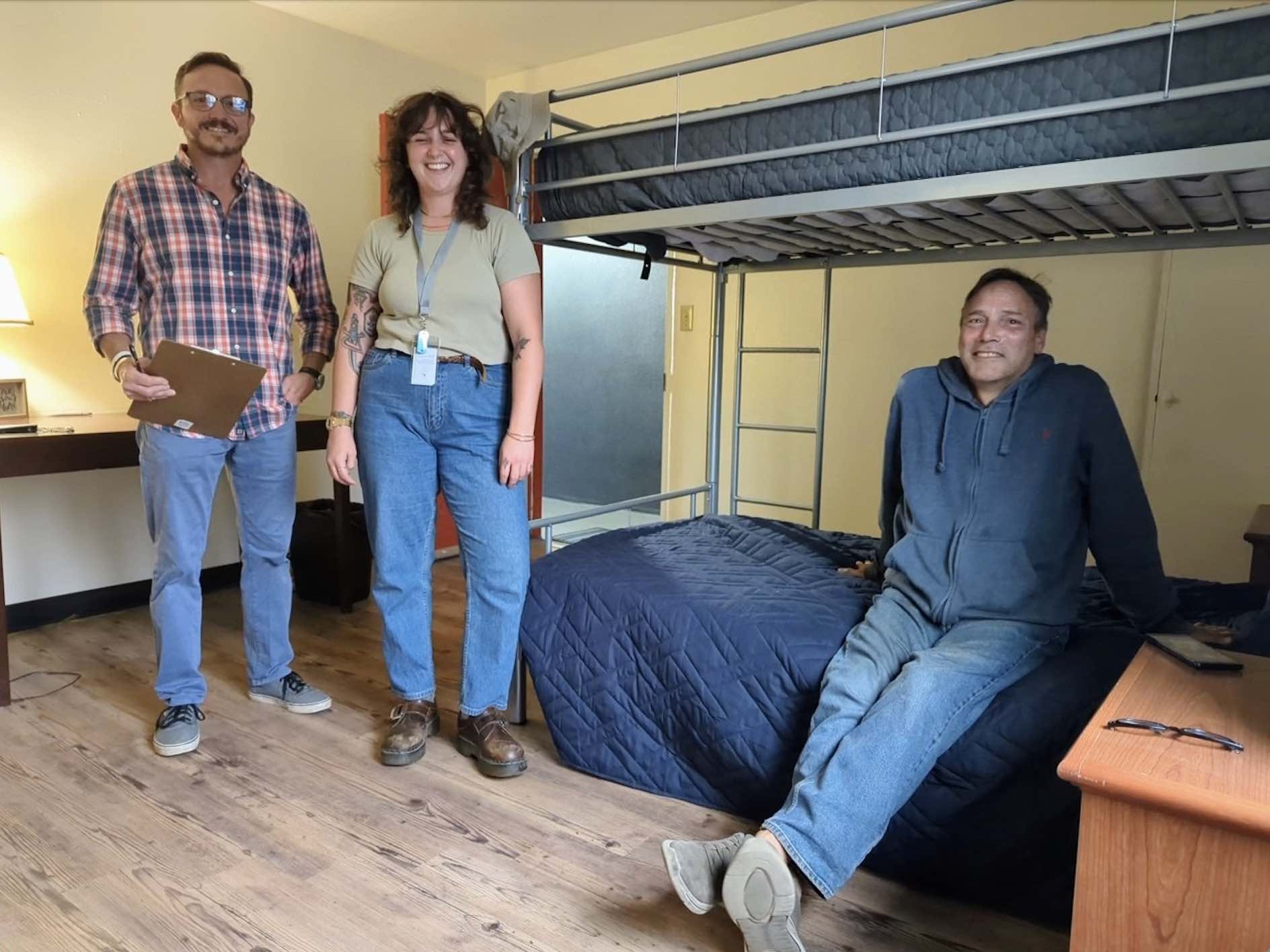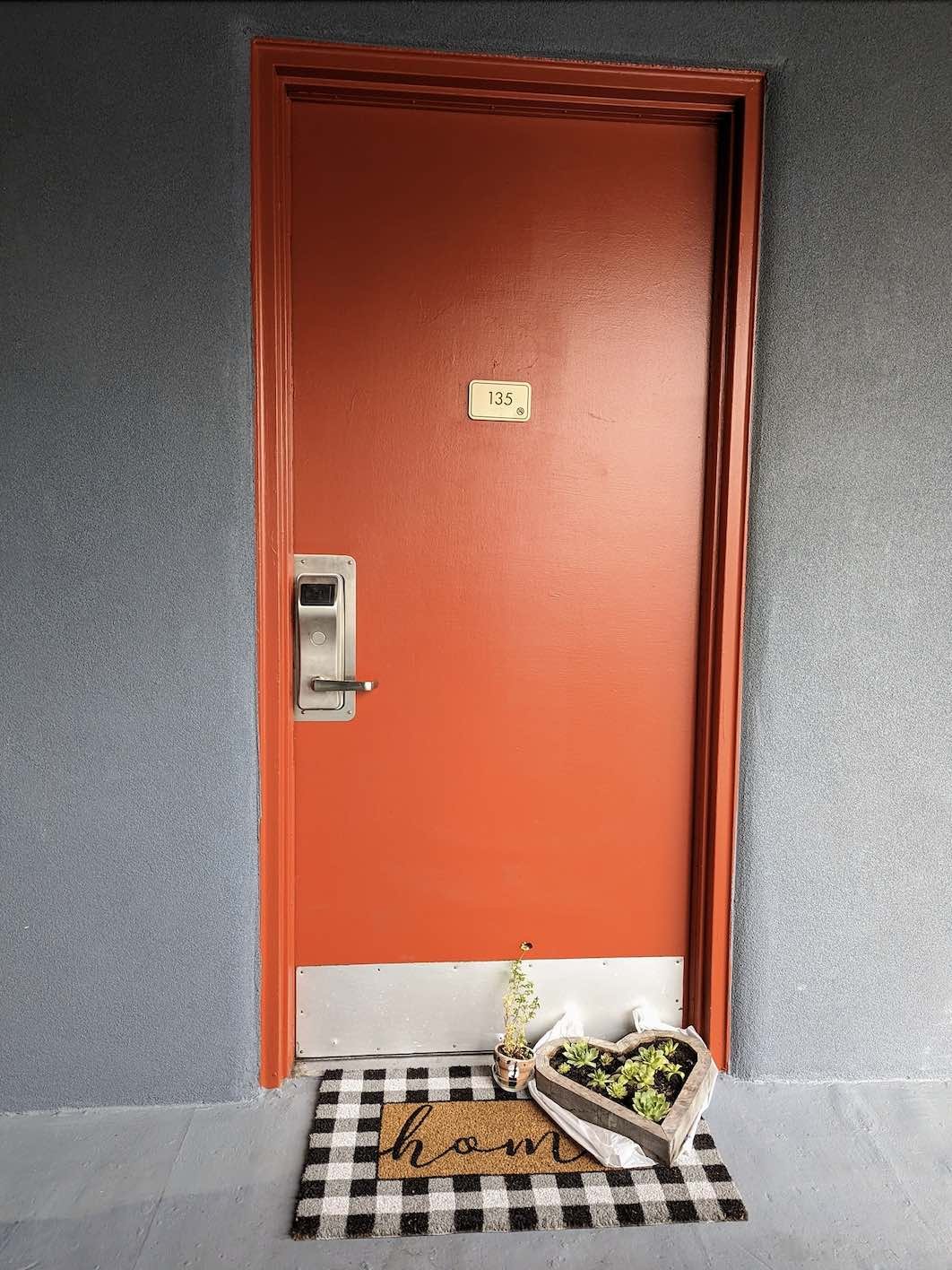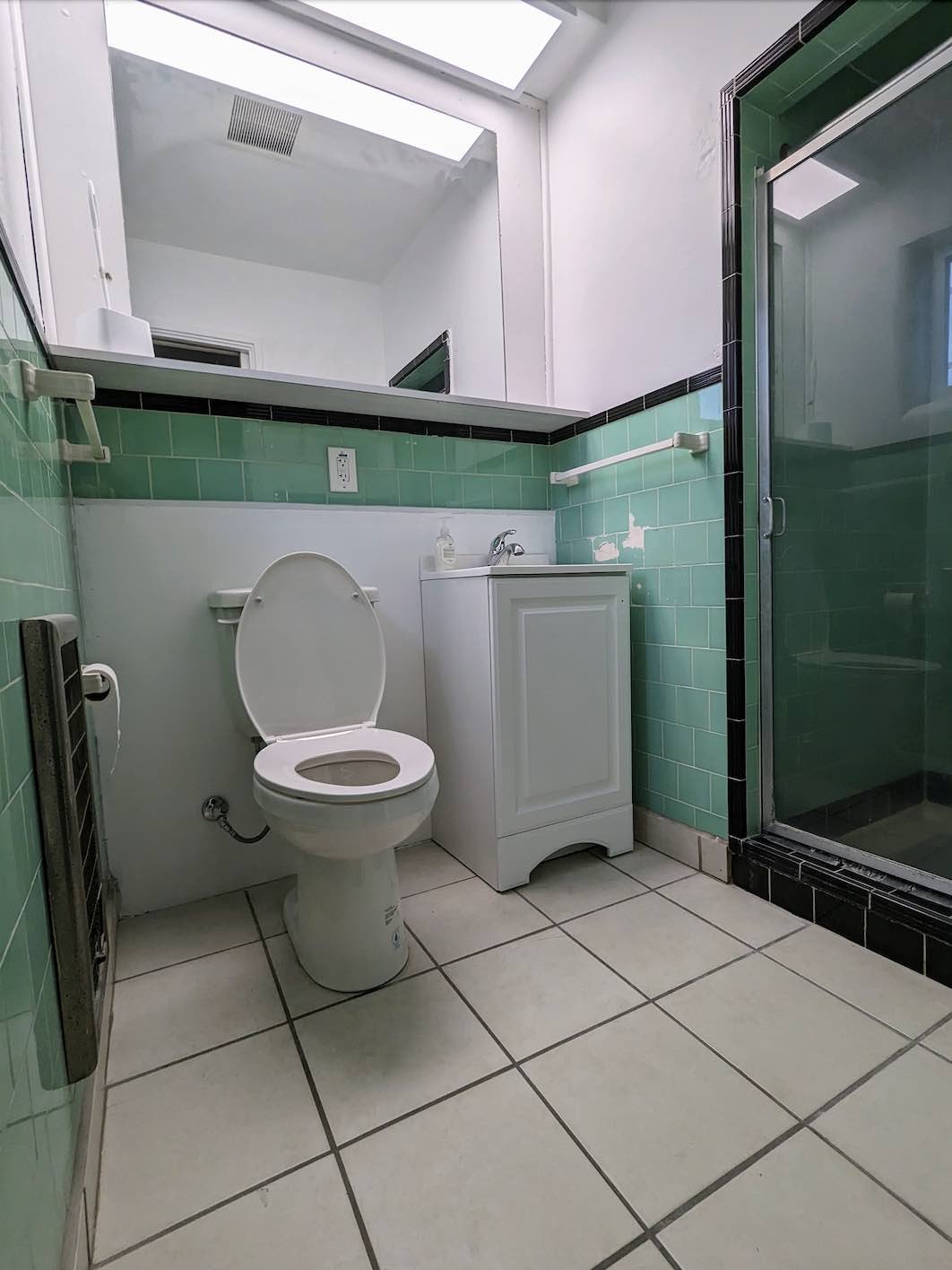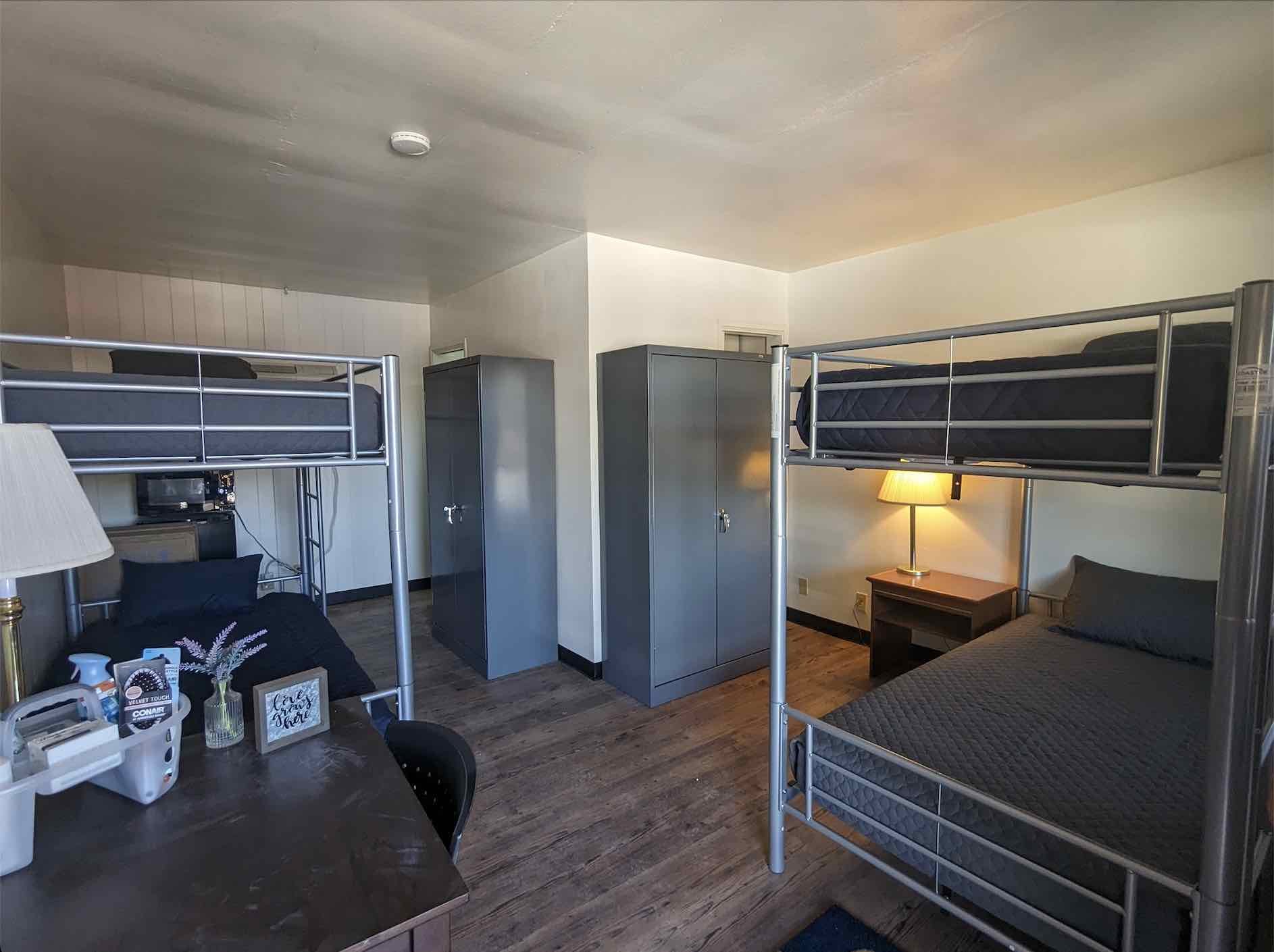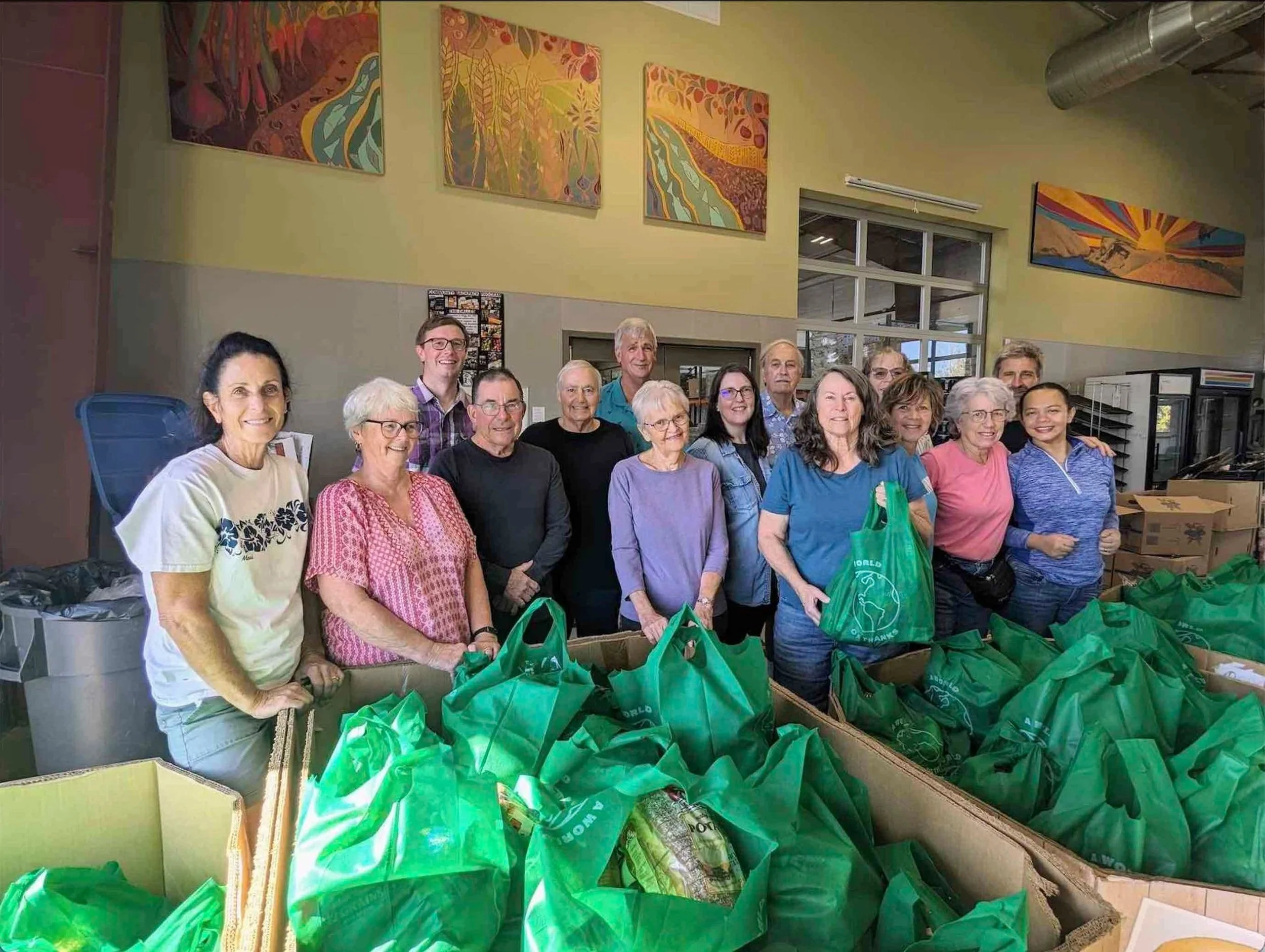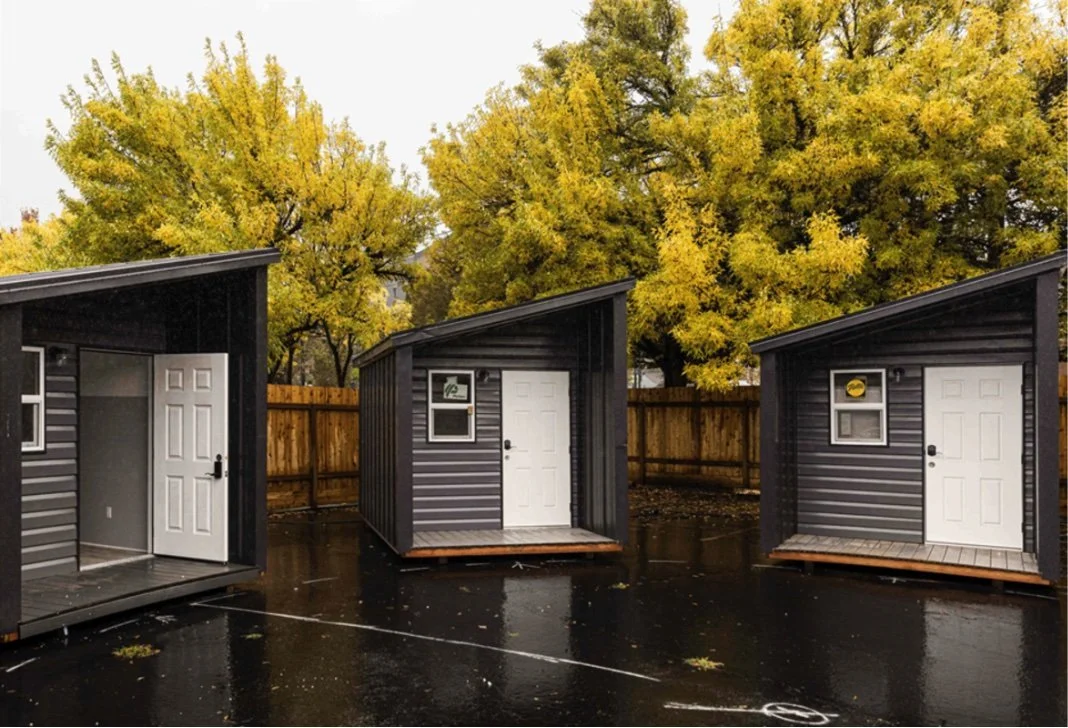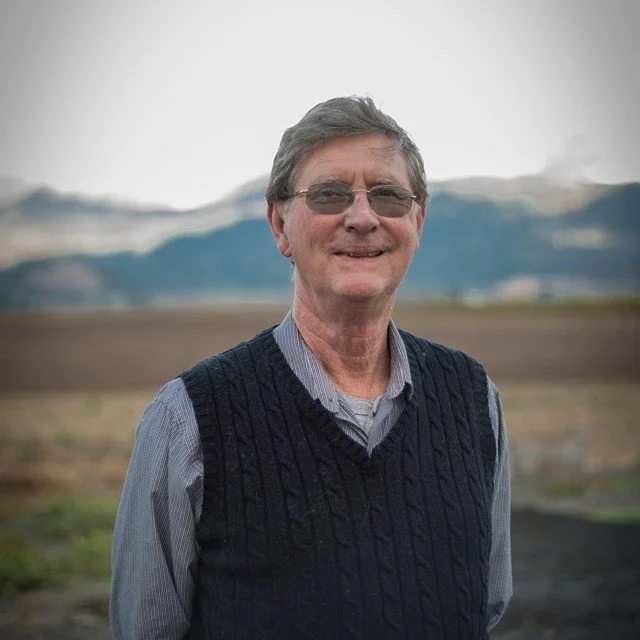Confronting the Housing, Food Access, and Mental Health Crisis in The Dalles
By Cole Goodwin
Nov. 1, 2023 - The Dalles and the Gorge have come light years in providing assistance to those who walk the streets with no permanent place to get out of the weather.
They’ve been freezing lately with temps dipping below zero.
They have no place to keep their belongings. No place to shut out the threat of theft, abuse, or worse.
But still, the din of public outcry about safety, sanitation and crime continue to echo the fear of locals who look into the faces of the houseless and see a problem that is frightening and dangerous.
It’s the garbage. It’s the drugs. It’s public urination and defecation.
Those are some of the factors, indeed. But nowhere close to the complete picture.
Those details fall far short of an expansive understanding of what’s at play in The Dalles, The Gorge and the greater part of Oregon. Houselessness encompasses a large spectrum of people that range from functional to dual diagnosed with addiction and mental health issues.
The houseless problem is as varied and complex as these people who are couch surfing, sleeping in cars, staying with friends or shivering under a tarp on the street. The reasons for being houseless range from losing a job to divorce to abuse, addiction, trauma, mental health, alcoholism, impulsiveness…
But one thing is clear - people experienceing houselessness are not going away.
In the 2023 survey, Wasco County had 160 houseless; Hood River County, 111; and Sherman County, 11, according to the Mid-Columbia Community Action Council point-in-time analysis. The count was up 5 percent compared to the prior year.
Statewide In 2022, an estimated 18,000 Oregonians were without housing and estimates say that Oregon would need to build over half a million new housing units in the next 20 years to meet the growing housing demand.
The crisis is also evidenced by Oregon Governor Tina Kotek signing of three executive orders to address the state's housing and houselessness crisis, declaring a public emergency and putting tens of millions of dollars toward creating more residential units.
The Dalles is taking some big steps
The Dalles like other communities in the state is creating additional housing and social services within a short period of time to better help locals who find themselves houseless.
In recent years, The Dalles has expanded its transitional housing, and food access services due to increased need both locally and statewide - it is one of the places making major leaps toward providing a more wholistic approach for the houseless while attempting to find the beds and services at the same time.
It also is in the process of finding a location on which to build a new mental and behavioral health facility to help address root causes of addiction, incarceration, and houselessness for those most strongly afflicted.
Housing for the Homeless
Mid-Columbia Community Action Council has spearheaded the effort to address reducing houselessness through a housing first model in recent years to great success. In 2021, MCCAC provided 1,300 people with housing assistance to help prevent and end houselessness and in 2022, they helped 1,000 people navigate housing stabilization with caseworkers. In addition, thanks to MCCAC ‘s rent assistance program, 140 community members at risk of eviction did not lose their housing in 2022 and 115 people were transitioned from houselessness into long term, stable housing, including 17 seniors over the age of 62 and 10 veterans.
Thanks to their efforts, The Dalles also now boasts MCCAC’s 54-room Annex, formerly operated as a 54-room motel, the facility has been fully renovated and converted to transitional housing and shelter for families, couples, and individuals in need of stability while they seek long-term permanent housing.
MCCAC and its core partner organizations provide 24/7 oversight and services on the Annex site. A security guard watches over the premises during nighttime hours.
The Annex is part of a $124.7 million investment by the State of Oregon called Project Turnkey, which has created 1,384 housing units at 30 sites throughout the state.
MCCAC is also in the process of building a “one-stop shop” style facility to help people navigate various housing and stabilization related services. The Gloria Center, as it is named, is currently under construction on West 7th Street near Coastal Farm Supply.
These services include housing case management, Veterans services, physical health, behavioral health, youth and family services, and Native and Latinx-specific services. They also coordinate services with other local service providers such as Mid-Columbia Center for Living, One Community Health, the Oregon Human Development Corporation, Nch’I Wana Housing, the Department of Human Services, the Youth Empowerment Shelter (YES House), The Next Door, Worksource Oregon, Bridges to Health and the Columbia Gorge Food Bank.
Statewide, navigation center openings include the Gary Leif Navigation Center in Roseburg, the Lighthouse Navigation Center in Bend, and the Lane Navigation Center in Eugene. Navigation centers in The Dalles and McMinnville are in the process of being erected.
Addressing Food Insecurity
The Community Backpack Program operating out of their new location at Columbia Gorge Food Bank located at 3525 Crates Way, in The Dalles. Photo Credit: Cole Goodwin
According to Feeding America, 1 in 6 Oregon households are food insecure. In addition, the pandemic, cut backs in Supplemental Nutritional Assistance (SNAP) benefits, and rising cost of food and housing has significantly worsened food insecurity. Luckily, The Dalles is now home to an expanded Columbia Gorge Food Bank facility that serves between 5,000-7,000 people a month, of which 50-60% are residents of Wasco County. The food bank also helps house programs like The Dalles Community Backpack program which feeds several hundred students every week.
Meals on Wheels and Windy River Gleaners also provide food for those in need.
Local Soup Kitchen Underfire
St. Vincent de Paul Society (SVdP), provides space for the only ready-made low barrier hot meal service for those in need in The Dalles. Organizations such as Community Meals and Bread and Blessings operate out of SVdP’s commercial kitchen to provide food assistance to those who are struggling. These organizations serve 12 meals a week and serve some 8,000 individuals a year. However a public nuisance lawsuit filed against SVdP in September of 2021 means that these services are currently facing an uncertain future.
Installing a Public Bathroom?
Given the number of complaints about public urination and defecation over years, the City has struggled to come up with a restroom site that is sturdy, serviceable and within the public eye to provide better protection.
Council agreed to utilize the bathroom at the former transit center on Federal Street to provide a toilet to the public, including houseless people, only to have it vandalized and shuttered after repeated destruction last summer.
The City of The Dalles staff has proposed installing a public bathroom in the downtown parking lot on West Third Street to curb public urination and defecation in recent months. The intent is to also provide greater dignity to those living on the streets of The Dalles. The cost was around $175,000. However, this initiative was met with pushback during public meetings on where it should be located.
It is expected, however, that the bathroom will get another hearing in months to come and there are the council votes needed to construct it once a location is agreed upon.
Addressing Mental and Behavioral Health
Wasco County Sheriff Lane Magill
While organizations such as Mid-Columbia Center for Living provide mental health support locally, state wide healthcare staffing issues exacerbated by the covid pandemic have made administering and accessing mental, behavioral and crisis services increasing difficult, especially in rural areas.
While the reality of the situation is somewhat bleak, a group of volunteers is working hard to change that reality for Wasco, Hood River, and Sherman County.
The Local Public Safety Coordinating Council (LPSCC), headed by Wasco County Sheriff Lane Magill has been working towards building the Columbia Gorge Resolution Center (CGRC) since 2019.
The CGRC, which is now fully funded thanks to a grant from the Oregon Health Authority will aim to provide detection, prevention, proper treatment, and ongoing support to individuals with mental and behavioral health issues in Wasco, Hood River, and Sherman County by adding supporting infrastructure and programming services to address mental and behavioral health inequities in the Columbia River Gorge.
The ultimate goal of the project would be to address the root causes of mental health-related arrests and incarcerations and to help individuals with mental and behavioral health issues to lead successful lives.
The intent of this facility is to provide additional help to the most difficult cases of houselessness where people have been living on the streets for years and are battling such dual diagnoses such as serious addiction and mental health issues.
The Center will have a mental health and addictions treatment facility specializing in providing access to co-occurring (mental health and addictions) treatment, psychiatric and addiction stabilization, and inpatient respite services for the community and the surrounding counties.
The City has been exploring the option of building the facility on what is currently known as the Kramer Field Ball Park.
Training Law Enforcement to Handle Mental Health Calls
In addition, in recent years, the City of The Dalles Police and Wasco County Sheriff’s Office have undergone crisis intervention and de-escalation training. The Dalles City Police Chief Tom Worthy says that City Police work closely with the Center for Living when responding to mental health calls.
In July, The Dalles City staff proposed the creation of a partnership with Mid Columbia Community Action Council (MCCAC) to hire two full-time behavioral health staff members. They would work with law enforcement on issues with houseless people who may be creating a public disturbance or other various issues. It was noted that houseless people might be more apt to cooperate with a behavioral health staff member rather than police in agreeing to accept social programs that are available to them. The Council made no decision on the proposal at that time.
What Other City’s Are Doing
The issue of housing is statewide. In 2022 an estimated 18,000 Oregonians were without housing. Statistics from the State show that Oregon would need to build over half a million new housing units in the next 20 years to meet housing demand.
Housing first solutions like supportive housing, shelters, villages, and rent assistance are among some of the most effective solutions that are being implemented across all 50 states, studies suggest. According to the University of California San Francisco nearly 90% of all chronically homeless people placed in permanent housing in Santa Clara County remained housed for more than two years.
And in 2022, Brendan O’Flaherty, a professor at Columbia University found that out of 100 people who are offered permanent supportive housing, 24 will not become homeless again.
In Portland, the Safe Rest Villages, which are transitional housing communities, have reported moving more than 50% of their residents into stable housing.
Safe Rest Village in Portland, Ore.
In Eugene, Opportunity Village, another transitional housing facility has also reported high success rates.
In addition to reducing homelessness, these housing programs also reduce visits to hospitals, mental health facilities, and arrests for thier clients.
This success comes at a cost however, as housing first programs vome at a high cost. In August of 2023, Multnomah County reported spending nearly $14.8 million to place 934 people in permanent supportive housing during the course of the last year.
Others have taken a slightly lower cost approach.
In Pendleton, OR “right to rest” areas have been created to allow those who are homeless to sleep in designated public places between 10 p.m. and 6 a.m.
A map of right to rest areas in Pendleton, Ore.
However, much like in The Dalles, many communities rely almost entirely on non-profits and volunteers rather than goverment to provide services for those experiencing houselessness.
For example in La Grande, Union County Warming Station, a volunteer lead organization that is open from November 15- March 15, offers a place to sleep and a warm meal for those in need during the colder months, although clients must leave the space by 7:30 a.m. each morning.
And in Bend, St. Vincent de Paul of Bend offers food, clothing utility, propane, prescription, and transitional housing to help families and individuals in need.
Terry McDonald of SVdP in Lane County
Homelessness is a spectrum: A look at the different categories of those experiencing homelessness.
Terry McDonald, Executive Director at St. Vincent de Paul of Lane County, Inc. toured the Community Meals building in The Dalles two years ago providing advice about how the small volunteer group in The Dalles could go about delivering services here.
McDonald oversees programs to fund social services and address the needs of an increasing low-to-no-income population. He’s a bit of a phenom in the nonprofit social services and thrift industries.
McDonald took over SVdP after his father passed away in 1984 and focused on building waste-based enterprises to fund social needs.
Today, SVdP in Lane County is the largest nonprofit organization, assisting more than 84,000 people each year. The organization serves 35,000 people annually by operating more than 1,500 affordable housing units; two-day access shelters; a low-barrier employment program and more. The organization uses revenue from thrift stores and other waste-based businesses to pay for the social services it provides and diverts millions of pounds of reusable items from landfills each year.
In short, McDonald knows what he’s doing.
And part of his success is understanding the people behind it.
While assessing the situation in The Dalles, McDonald explained there was a hierarchy to the houseless:
20% are moving up, are willing to change their lives, and have come to some revelation to improve their place. They have a history of drug and alcohol use but their main barrier to becoming housed is income. These people have the best chance of success, McDonald said.
65% are situationally houseless, meaning a life-altering event such as domestic violence, job loss or medical emergency has put them on the street. These folks are functional but need assistance to regain a residence to live.
10 to 13% are chronically houseless where they have lived on the streets for more than a year and commonly have addiction or mental health challenges or both. He said this is the segment of the houseless population that most people see. They are unable to follow the rules of transitional housing situations. In essence, McDonald said these were the people who could not abide by the rules in a pallet shelter. And yet, these people will continue to live in communities on the street and in public spaces for years.
5% are criminals relying on property crime. McDonald said these are the houseless people that most do not see as they operate at night and shy away from temporary housing and rules. "This population will grow if not treated," McDonald said. "It will get worse,” he said noting police and jail cells can provide an interrupting moment for these people who are on a course toward an early death.
For those 10 to 13 percent who are chronically houseless and can't make it in a structured environment, he recommended day services that included showers, a place to wash clothes, access to a bedroll, and food in a safe environment. He said those basic services can remove enough anxiety for a houseless person that they can envision themselves past the next hour and possibly in a better place. And it is only with those moments, that people have the time and clarity to take a step to improve their lives.
He said these elements that provide clear thinking had to be in place for a houseless person to move up the tiers toward permanent housing and employment. He said such a facility had to be well managed while rules are enforced and he pointed out that “you have to have enough public resources to deal with it.”
Sponsored Content

